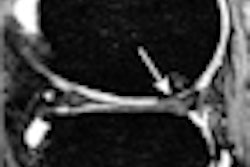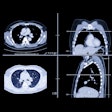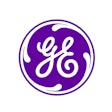
NEW YORK (Reuters Health), Jul 9 - When metastatic colorectal cancer is confined to the liver, hepatic arterial injection of yttrium-90 resin microspheres can significantly improve response rates, Belgian researchers report.
Everyone in the trial had unresectable, treatment-refractory disease.
"This is the first randomized study showing that radio-embolization with yttrium-90-loaded microspheres for very selected patients with metastatic colorectal cancer limited to the liver and no other chemotherapy option, can induce a valuable benefit with few side effects," lead author Dr. Alain Hendlisz told Reuters Health by e-mail.
In a phase III trial reported online June 21 in the Journal of Clinical Oncology, Dr. Hendlisz of Institut Jules Bordet, Brussels, and colleagues randomized 46 patients to protracted fluorouracil infusion on days 1 through 14 every three weeks with or without hepatic intra-arterial injection of the microspheres. Forty-four were evaluable.
With a median follow-up of about two years, the median time to liver progression -- the primary end point -- was 5.5 months in the radio-embolization group compared to 2.1 months in the control group (p = 0.003). Corresponding times to tumor progression (at any site) were 4.5 and 2.1 months (p = 0.03).
Only one patient in the radio-embolization group experienced grade 3 or 4 toxicity, compared to six in the monotherapy group (p = 0.10).
After progression, 35 patients received further treatment, including radio-embolization in 10 patients who had been assigned to the control group.
Median overall survival was 10.0 months in the microsphere group and 7.3 months in those initially randomized to monotherapy (p = 0.80)
"This technique, which requires high (technical skill) and excellent work integration for oncologists, nuclear medicine specialists, and radiologists, could have a great added value in future management of liver metastatic spread from colorectal cancer," Dr. Hendlisz said.
Earlier this year, a separate team of researchers reported using yttrium-90 in glass microspheres to treat patients with inoperable primary hepatocellular carcinoma. In some cases, they said, tumors could be shrunk to the point where patients could become eligible for liver transplantation.
The current study was supported by Sirtex Medical Limited (Sydney, Australia) via provision of the yttrium-90 resin microspheres.
By David Douglas
Source: http://link.reuters.com/zap56m
J Clin Oncol 2010.
Last Updated: 2010-07-08 14:47:05 -0400 (Reuters Health)
Related Reading
Yttrium-90 microspheres prolong survival with advanced liver cancer, March 18, 2010
Chemoembolization, yttrium give similar results against advanced liver cancer, February 2, 2010
Copyright © 2010 Reuters Limited. All rights reserved. Republication or redistribution of Reuters content, including by framing or similar means, is expressly prohibited without the prior written consent of Reuters. Reuters shall not be liable for any errors or delays in the content, or for any actions taken in reliance thereon. Reuters and the Reuters sphere logo are registered trademarks and trademarks of the Reuters group of companies around the world.


















